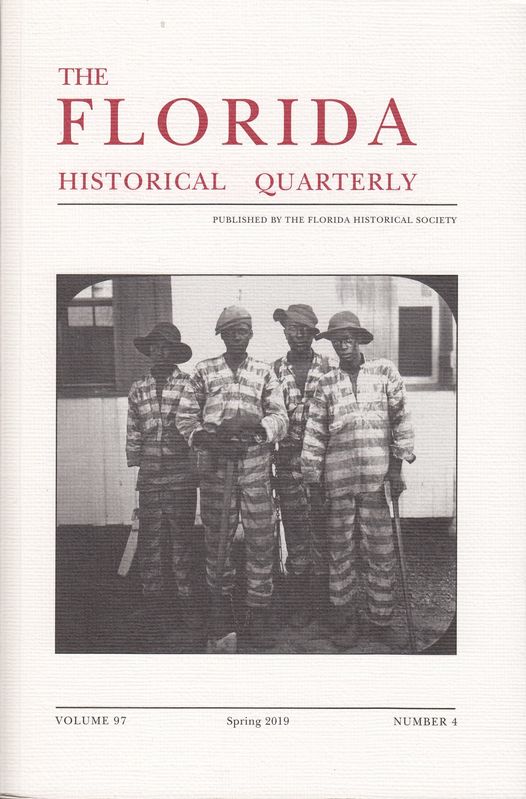Articles
Probability and the philosophies of science: a realist view
SocArxiv https://doi.org/10.31235/osf.io/k3nf5_v1
This paper discusses probability theory in light of the competing worldviews of philosophical realism and empiricism. The focus is on the relevance of probability theory to qualitative, theoretical, and explanatory reasoning. The theory is illustrated by applying it to a portion of Galileo’s Dialogue concerning the two chief world systems.
Spatial uncertainty and probability
with co-author Yongwan Chun. Oxford Handbook for the Spatial Humanities (forthcoming)
This chapter discusses probability theory, spatial data analysis, and research methodology in the humanities, organized around a constructive critique of Franco Moretti’s ‘operationalist’ method of literary analysis. To illustrate, we re-analyze state prison sentencing data from a historical study of Florida’s convict leasing program.
Plausible reasoning and spatial-statistical theory: A critique of recent writings on ‘spatial confounding’.
Geographical Analysis (2025) https://doi.org/10.1111/gean.12408 (open access)
A growing statistical literature is organized around the supposed problem of “spatial confounding” (SC), but that literature is completely estranged from, and generally at odds with, the existing literature on spatial autocorrelation (SA). This paper is a theoretically-grounded review of the history of research on correlation with spatial data and a critique of the new “spatial confounding” literature.
Investigating cancer inequalities in urbanizing Texas with plausible reasoning
The Annals of the American Association of Geographers (2025) DOI:10.1080/24694452.2024.2425807 PDF (open access)
This article examines changes in the social geography of colorectal cancer (CRC) incidence following the spread of improved preventive technology circa 2003, namely screening colonoscopy. It adopts a realist approach to social science methodology, and a political-economy of health perspective on disease prevention.
Colorectal cancer incidence, inequalities, and prevention priorities in urban Texas: Surveillance study with the ‘surveil’ software package
with co-authors Amy Hughes and Simon Craddock Lee.
JMIR Public Health and Surveillance (2022) https://doi.org/10.2196/34589 (open access)
Modeling time trends in disease incidence and mortality is a basic public health research task. We present a Bayesian methodology and open-source software (surveil) for time-tend modeling in public health. The software aims to provide an accessible and superior alternative to commonly-used joinpoint regression models.
Building spatial conditional autoregressive models in the Stan modeling language
OSF Preprints (2021) https://osf.io/preprints/3ey65 (open access)
This paper introduces computational methods for building (proper) spatial CAR models, as implemented in the geostan R package. A comparison shows that these models can sample about 10 times faster than CAR models in the alternative platform Nimble.
Modeling community health with areal data: Bayesian inference with survey standard errors and spatial structure
with co-authors Yongwan Chun and Daniel A. Griffith.
Internt’l J. of Environ. Research and Public Health (2021) https://doi.org/10.3390/ijerph18136856 (open access)
This study examines the potential for sampling error in the U.S. Census Bureau’s American Community Survey (ACS) estimates to influence research findings when ACS estimates are used as covariates. We show how survey standard errors can be incorporated into a Bayesian spatial hierarchical model; the method is available through the geostan R package.
Bayesian estimation of spatial filters with Moran’s eigenvectors and hierarchical shrinkage priors
with co-authors Yongwan Chun and Amy Hughes
Spatial Statistics (2020) https://doi.org/10.1016/j.spasta.2020.100450 PDF (open access)
A study of uncertainty in various spatial regression methods with a proposal for an implementation of eigenvector spatial filter (ESF) techniques using sparsity-inducing prior distribution. The paper also highlights some of the analytical problems with restricted spatial regression (RSR).
The Making of Florida’s ‘criminal class’: Race, modernity, and the convict leasing program, 1877-1919
Florida Historical Quarterly (2019) PDF (author’s copy with additional material); PDF (the FHQ article)
Under the State of Florida’s convict leasing program (1877-1919) approximately 14,000 Floridians and visitors served sentences of hard labor, working for private interests like phosphate mines and lumber companies. This article draws on over four decades of reports on the prison system by its administrators in the Florida Department of Agriculture, geographic sentencing data, data on prisoner characteristics, minutes from the Board of Pardons, and additional materials held in the Convict Lease Subject Files in the Florida State Archives.

Disciplining labor, dismantling democracy: Rebellion and control in Wisconsin
Chapter 1 in Wisconsin Uprising: Labor Fights Back (Ed. Michael Yates), Monthly Review Press 2012
In 2011, Wisconsin Governor Scott Walker introduced a ‘Budget Repair Bill’ and other legislation that aimed to break public sector unions and cut $4.2 billion from the budget. The legislation sparked popular opposition on a scale not seen in decades, including spontaneous labor and student actions and demonstrations with over 100,000 people at the capitol. After a failed effort to recall the governor, Walker passed right-to-work legislation, betraying a promise to private sector unions. This chapter discusses the political conflict over the Budget Repair Bill and the broader strategy of the billionaire-backed think tanks behind Walker’s political agenda.